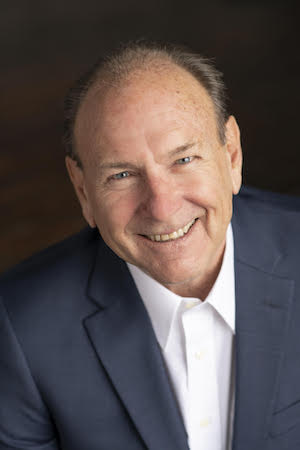“In a time of deceit telling the truth is a revolutionary act.”
— George Orwell
David McKee was born in 1961 to Christopher and Linda McKee. They were people of words and letters, and those qualities were passed on to him.
His father was a college librarian, and his mother taught history at the college level. He moved about a bit during his upbringing, from this state to that, and he received a degree in English from Macalester College in St. Paul, Minnesota.
Having a degree in English, combined with very little experience, immediately paid off. McKee was able to secure a job driving about and making deliveries, working as a cashier in a porn shop, and working at a convenience store. He also became familiar with food stamps, for he needed them to survive. This was short-lived, however, lasting a mere eight years.
He continued to push his way into journalism and eventually specialized in dozens of areas within that domain.
Reading David’s resume is akin to reading an Excel spreadsheet, as it is a long list of specialties and past and present occupations. Contrary to the norm, however, McKee does not exaggerate or aggrandize himself; instead, he is accurate and concise in his descriptions. He has primarily served as a writer, managing editor, correspondent, freelance writer, contributing editor, author, and editor-in-chief. And he is actually serving in many of these capacities now.
He has also provided bylines for a very long list of publications (including Casino Reports). He has a broad reach across many dimensions of life and is actively involved in ensuring that they are codified in articles, blogs, columns, magazines, social media, and similar platforms. David is also very good at digging through financial statements and regularly tortures himself by listening to earnings calls. He is a Renaissance man, with many interests and seemingly unlimited energy.
As I was recently visiting with David, I had this image of him having to carry a special document holder just for his different business cards.
Working ‘stiff’
I discovered David in the first decade of this century. He had migrated to Las Vegas and was writing about THE industry. I stumbled across a column of his called “Stiffs and Georges,” and I loved the title, for I had dealt cards and dice for a period in my life, and when one deals cards and dice, the words “stiffs” and “georges” hold a great deal of meaning. I immediately became a regular reader and fan.
Two things I noted about the column were that the author was very smart, and he spoke truth to power. I sometimes had to back up when reading his column to see if he really said that. And yes, he did. The man had no fear. And this was true year after year after year.
In Las Vegas, speaking truth to power meant raising your head above the parapet in the medieval sense. Lots of slings and arrows get fired at people who decide to question the system, and this is particularly true in Las Vegas, where the industry doesn’t just buy a lot of ads but actually owns the most prominent newspaper. It takes the notion of a company town into an absurd dimension. And quality journalism has become a niche industry, often found lurking about in smaller specialty shops.
In getting back to the many things that made David who David is, one of the critical influences was those eight years where he was working to get noticed by the system, while simultaneously trying to survive. He was, if you will, reasonably unimportant in the way that many people evaluate such things today. However, he was raised in an environment where the brain was considered an important organ and learning mattered. And in those eight years, he learned what it meant to be poor, to struggle, to go without.
McKee does not hover in the rarified air where his frame of reference is the rich and famous. No, David exists in that hard-scrabble world of sacrifice and struggle. He is about real people, not images, and reality, not spin.
He annoys people, at times. He is hard-wired to be honest, never merely convenient or safe. He is more likely to speak for those who do not have a voice than about those who have too large a voice. He does nothing to suggest that he is looking to become more financially successful as a journalistic shill, spouting silliness that the rich and powerful like to hear. No, David will always be a real journalist at his core, a rare character in today’s world.
Say what you mean, mean what you say
One of the things that I greatly admire about David is his mastery of language. When David states an opinion, it is not vague or confusing as to what he thinks or feels. It is always clear and well-articulated.
David thinks, as embodied by the Nevada regulators, that there has been a substantial decline in the number of people who take gaming regulation seriously in this day and age. He suggests that it has gone from something that many in the system feared and respected to something much less.
It is remarkable that a large number of friends and associates I speak with, who have extensive long-term experience with Nevada and gaming, as does David, share this view (albeit not always publicly). David often plugs into the regulatory meetings in Nevada and elsewhere, and he suggests they often disgust him. I personally understand exactly what he is talking about.
He also makes an impassioned statement that it has been the journalists and the federal government that have uncovered the failings of the Nevada casino operators to play by the rules. The regulators in Nevada have clearly been asleep at the switch, he suggests.
David believes that sports betting needs to be legal, but the speed and direction in which it is traveling have left the genie well outside the bottle. He also suggests that the operators and surrounding actors were given “a modicum of leash, and have run that leash to its max.”
Book it, David
I asked David if he had ever tried to write a book, and he said that he once started a book about Sidney Lumet. He even went so far as to do several interviews with Mr. Lumet, but that project just drifted away in the rush and traffic of life. I found this to be a remarkable tell into the soul of David.
That David would have embraced Lumet, who died in 2011 at age 86, makes complete sense. Lumet was a critical player in theater, television, and film for over six decades. His directorial accomplishments include Twelve Angry Men, Fail Safe, Dog Day Afternoon, Network, and many other notable efforts. And what Lumet was known for was embracing ordinary people, with themes that addressed morality, racism, moral decline, and social justice.
Yes, it makes total sense to me that David would want to dig deeper into this man, for they have very much in common.
I have been fortunate in my life to work as an executive for the likes of Steve Wynn, Sheldon Adelson, the Hughes folks, Bill Boyd, Lyle Berman, and others. And it is nice, I suspect, to be able to drop their names about.
But the real people who mattered during my extended tour of the industry were those like Clyde Turner, Karen Harrington, Scott Schlettler, Ann Holland, Lee Skelley, Susan Hensel, Jaye Snyder, Cindy Kiser, Brett Abarbanel, Dennis Conrad, and many others who not only taught me things about the business but also taught me valuable lessons about life. And they did it by example. Things like no one can take your honor, you have to allow it to be sacrificed — and never, ever, forget who you are. And most importantly, f*** ’em if they can’t take a joke.
I mention this because, back in the early part of the 21st century, I started reading a column with the great name of “Stiffs and Georges,” written by David McKee, and it taught me the importance of having the courage to always work toward telling the truth. I certainly have not lived up to his standards, but it gave me something to strive toward, and that was to work hard to be who you are and never fear the nonsense from the madding crowd.
Thanks, David, for the great example.
—
Richard Schuetz entered the gaming industry working nights as a blackjack and dice dealer while attending college and has since served in many capacities within the industry, including operations, finance, and marketing. He has held senior executive positions up to and including CEO in jurisdictions across the United States, including the gaming markets of Las Vegas, Atlantic City, Reno/Tahoe, Laughlin, Minnesota, Mississippi, and Louisiana. In addition, he has consulted and taught around the globe and served as a member of the California Gambling Control Commission and executive director of the Bermuda Casino Gaming Commission. He also publishes extensively on gaming, gaming regulation, diversity, and gaming history. Schuetz is the CEO of American Bettors’ Voice, a non-profit organization dedicated to giving sports bettors a seat at the table.


 1 hour ago
4
1 hour ago
4













